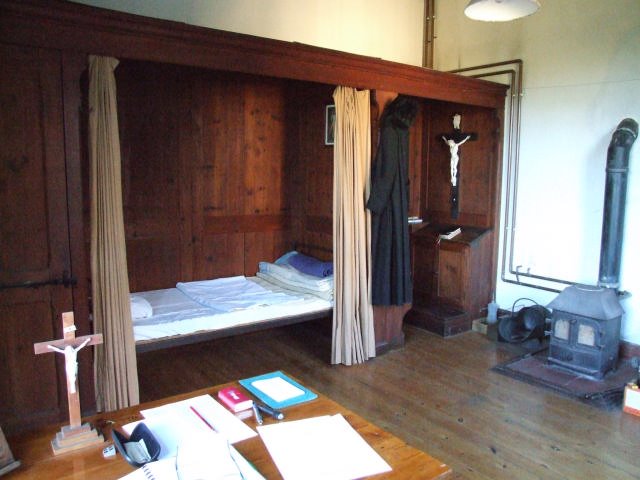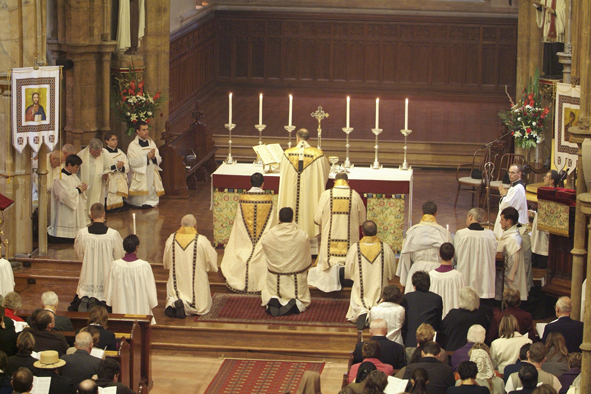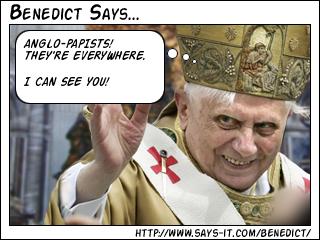
I often read and ponder the items that are periodically published by the
Society of Saint Pius X. Let me preface the random thoughts below by saying that I have the greatest of sympathy for the Society’s fight for a place for the traditional rite within the western Latin Church but I instinctively feel they are heading in the wrong direction.
After the recent Chapter, SSPX issued a
Declaration from the General Chapter on its relationship with the Holy See. In this Declaration are these words from Archbishop Marcel Lefebvre:
We adhere with all our heart and all our soul to Catholic Rome, guardian of the Catholic Faith and of the traditions necessary for the maintaining of that Faith, to eternal Rome, mistress of wisdom and of truth. On the contrary, we refuse, and we have always refused, to follow the Rome of neo-modernist and neo-protestant tendencies, which showed itself clearly in the Second Vatican Council and in the reforms that issued from it.
At first these words struck me as powerful words that call for action! I am not a great fan of the
reforms that issued from Vatican II, especially in the area of liturgy. However I do belief that God has worked through Vatican II. On further reflection I wonder if these words do not, in some way, deny the living reality of the Church. Does the Holy Spirit guard the deposit of faith and guide the
magisterium of the Church?
A quote from Adrian Fortescue,
The Early Papacy, came to mind:
The position is this: There are two kinds of proof for any dogma. The main proof, the most efficient in every way, the proof which is the real motive for every Catholic, is simply that this dogma is taught now by the Church of Christ, that Christ has given to his Church his own authority, so that we can trust the Church as we trust Christ himself.
The issue is quite simple whether Christ today speaks with a living voice to the people whom he has gathered into his Body. I think that the problem lies not with Vatican II but with the
reforms that issued from it. We need to be aware that the problems on the left are mirrored on the right. The call to replace the voice of the Spirit with the social norms of the 21st century is mirrored in the endeavour to place empty traditionalism at the heart of the Church. At no cost should we, in our haste to reclaim the living tradition of western Catholicism, forget that the Church that is founded by Our Lord is a living reality today: a Body with a living voice that requires of me absolute obedience.
Sancte Petre, ora pro nobis.







